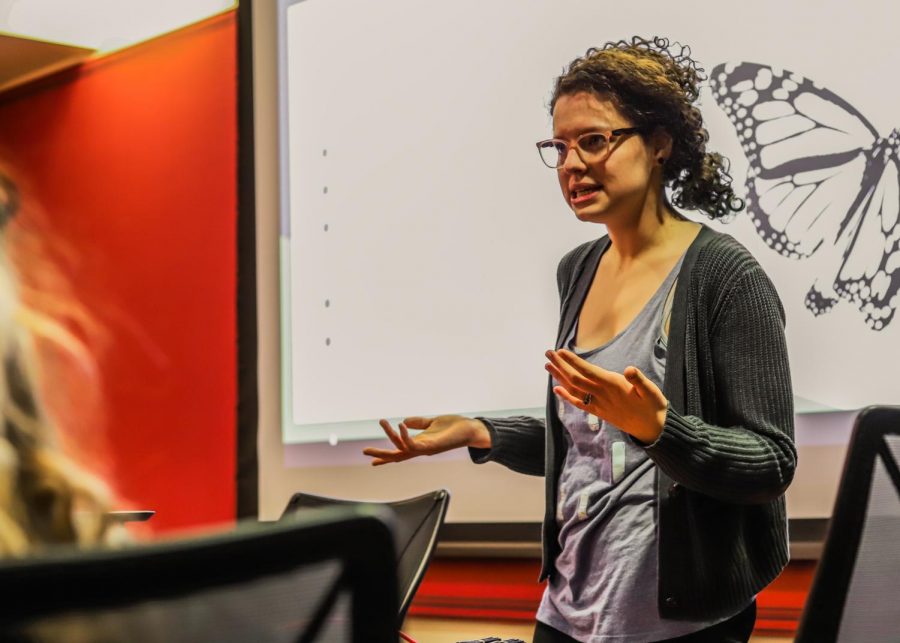Undocumented students’ future discussed
Supreme Court will decide in 2020 if DACA program will continue
Audrey Faunce, senior law student from the University of Idaho Law Clinic, speaks at the final Crimson Group meeting of the semester and discusses the future of DACA status on Tuesday evening at the CUB.
November 20, 2019
Members of Crimson Group along with lawyers from the University of Idaho discussed the future of the undocumented community during their last meeting of the semester Tuesday in the CUB.
The Supreme Court is set to decide in 2020 whether the Trump administration can move forward in its efforts to shut down the DACA program.
Audrey Faunce, senior law student from the University of Idaho Law Clinic, said the DACA program allows for undocumented immigrants to work, further their education and protects undocumented immigrants from being deported.
Brenda Yepez, co-chair for Crimson Group, said if the DACA program ends many undocumented people around the country and members of the community may be at risk for deportation.
She said herself and other Crimson Group members traveled to Olympia on Nov. 12 because of the Supreme Court hearing. Their goal was to make their voices heard and bring awareness about how the end of DACA can change lives forever
“We wanted to let people know that home is here for us and immigration status does not define who we are,” said Yepez.
Faunce gave a presentation along with Kathryn Railsback, immigration attorney and Director of the Immigration Law Clinic, on knowing your rights for undocumented people, which included an update on the current status of DACA.
It can be hard to give specific advice for students on their next steps for what to do if their DACA is terminated because creating an action plan tailored to a specific person requires individual attention, she said.
Faunce was able to answer general questions about the DACA renewal process including what to do if a student’s DACA is soon to expire, renewal costs and the best time to start the process.
“Worst case scenario if DACA is rescinded we hope some congressional action will take place to help those who will be affected,” she said.
She said students who are concerned about their DACA status can meet with herself or Railsback to find a new type of pathway or program out there that could benefit that student.
Railsback said an important piece of advice for those who have DACA is to stay away from others who get into trouble and to avoid situations that could lead to arrest. She gave an example of having marijuana on your person.
She said that though marijuana is legal in Washington it is not legal federally so that is something Immigration Customs Enforcement can detain someone for. She said any situation like this can affect DACA status being changed.
Railsback said having emergency immigration preparedness documents ready is also an important step that undocumented persons can take as a preventative action.
She said these documents can show ICE that the person they may have detained can be released from detention safely. She said documents to include in the packet can be proof of marital status, property deeds, transcripts and awards.
Railsback said she wanted to end the presentation as positive as she could. She said there are more people across the country that support DACA and undocumented persons than many realize.
“I feel like there is still broad support out there for those with DACA, so I am still hopeful for the future,” she said.








